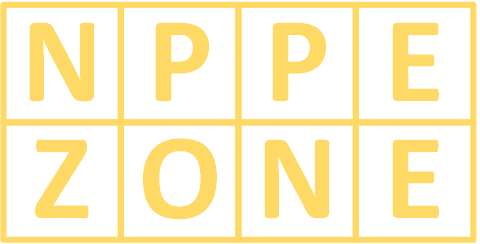One of Canada’s provincial or territorial engineering authorities must grant you a license if you want to practice engineering in the country. However, if you are under the supervision of a licensed engineer who accepts professional responsibility for your work, you can still begin working in engineering even if you haven’t received a license from a regulator.
Engineers-in-training versus licensed engineers
Engineers-in-Training and licensed engineers differ significantly in the following ways:
Engineer-in-training (also known as a Candidate for the Engineering Profession in Quebec) — This position denotes that the applicant has satisfied the educational qualifications and the good character standards, which is the first stage in the licensing procedure. Engineers-in-training strives to obtain the four years of engineering work experience—including one year of comparable experience in Canada—that they must have in order to become licensed engineers.
Engineer license – This allows you to practice professional engineering in your field of specialization and assume full accountability for your own work. To become a licensed engineer, you do not need to be a citizen or long-term resident of Canada. However, your status may affect the type of license you are eligible to obtain (e.g., professional engineer or limited license engineer).
You are permitted to refer to yourself as an engineer and use the reserved title for your license type once you have received a license from one of Canada’s regulators (e.g., P.Eng.). It is forbidden to use an engineering title without a license.
Regulators
One of Canada’s twelve engineering regulators has jurisdiction over each province and territory. These agencies issue engineering licenses and oversee all facets of the engineering industry in Canada. You should get in touch with the authority in the province or territory where you want to work if you want to apply to become an engineer in Canada. Any inquiries you may have regarding the regulator’s rules or official policies will be addressed by the regulator.
Here is a current list of Canada’s engineering regulators:
- Association of Professional Engineers and Geoscientists of Alberta (APEGA)
- Association of Professional Engineers and Geoscientists of Saskatchewan (APEGS)
- Engineers and Geoscientists British Columbia
- Engineers Geoscientists Manitoba
- Engineers and Geoscientists New Brunswick
- Engineers Nova Scotia
- Engineers PEI
- Engineers Yukon
- Northwest Territories and Nunavut Association of Professional Engineers and Geoscientists (NAPEG)
- Ordre des ingénieurs du Québec (OIQ)
- Professional Engineers and Geoscientists of Newfoundland and Labrador (PEGNL)
- Professional Engineers Ontario (PEO)
(Source : https://engineerhere.ca/practising-engineering-canada/canadas-engineering-regulators )
The 5 Requirements
The engineering regulator in the province or territory where you wish to practice requires that you demonstrate that you meet five standards before they will grant you a license to practise engineering in Canada:
- Academic experience: You have a degree in engineering.
- Work experience: Working under supervision has given you the opportunity to apply your engineering knowledge.
- Language: You speak at least one of Canada’s two official languages fluently; French or English.
- Good character: Your actions have shown that you are trustworthy, true, and honest.
- PPE exam: You passed the Professional Practice Examination with professionalism and ethics (PPE).
Since it may take some time for a regulator to evaluate your qualifications after obtaining all of your essential documentation, it is important to get started on your application as soon as possible. In some circumstances, a regulator could ask you to take additional actions, like passing an exam or getting more training or experience.
Academic Experience
Your academic records—degrees, transcripts, or certificates—will be examined by the regulator to decide whether you need to take any more courses or exams. Your degree and transcripts must be sent immediately from your college to the regulator or the credential assessment body, depending on the applicable jurisdiction. Some regulators may additionally demand a certified translation if your academic credentials are not in the language of practice in the province or territory where you seek to work.
Work Experience
You must show evidence of applying your engineering education through engineering work for a predetermined period of time as one of your licensure criteria. The majority of the job experience you’ll need can be obtained outside of Canada, but all applicants, regardless of jurisdiction, must have some engineering experience in a Canadian setting.
Depending on the licensing authority you’re applying to, the format of your experience record will change. The record will typically include your name, the name of your employer, the job you held, the name of your supervisor, a description of the engineering work you accomplished, and the abilities and talents you displayed. A licensed engineer must evaluate and approve the record. Some regulatory bodies make use of competency-based evaluation.
Language
The two official languages of Canada are French and English, and you will need to demonstrate your proficiency in one of them. The province in which you intend to work will determine the language you need. In New Brunswick, either English or French is permitted, whereas in Quebec, French is necessary. All other provinces require proficiency in English. Your ability to communicate effectively with the general public, other people, coworkers, and employers is referred to as language competency. Regulations use different standards and evaluation techniques.
Good Character
You will have to offer proof that you adhered to the principles of accuracy, integrity, and dependability. This is significant because, as a licensed engineer working in Canada, you are expected to uphold the profession’s reputation.
PPE Exam
The Professional Practice Examination must be passed (PPE). This exam measures your understanding of engineering ethics and Canadian law, including trademark, contract, patent, and copyright laws.
Final Steps
The regulator will get in touch with you with instructions on how to finish the registration process so you can start practicing engineering in their jurisdiction if you successfully complete all these stages and the regulator determines that you have fulfilled the standards expected of license holders. You will be able to identify as an engineer as well.
